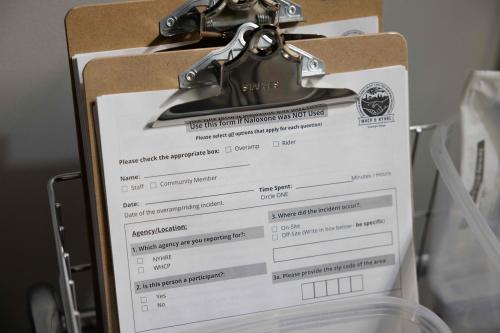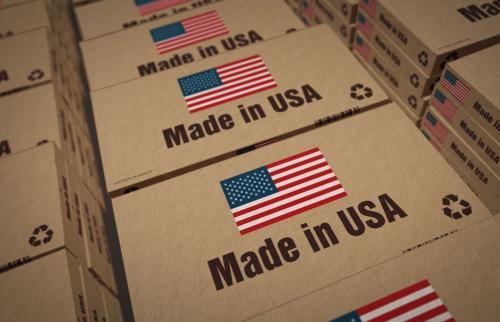Hamid Karzai was declared winner of the presidential vote in Afghanistan on November 2, and he was quickly warned that he must crack down on rampant corruption. Vanda Felbab-Brown joined several other experts to discuss what should be done about President Karzai’s brother, Wali Karzai, who has been linked to Afghanistan’s narcotics trade.
Redirect Power to Others
Ahmed Wali Karzai is symbolic of the larger problems of accountability, governance and rule of law in Afghanistan. We have faced similar problems in Iraq, Somalia and elsewhere, and will increasingly face them as we roll out development programs in Pakistan’s tribal areas.
The dilemma, in all these cases, is that such power brokers are undesirable in building legitimacy and lasting governing institutions, but in the short term are the ones whose consent is necessary to get anything done.
Although no concrete evidence has been put forward against Mr. Karzai, he is widely suspected of being linked to the drug traffic in Afghanistan. Indeed, many power brokers in Afghanistan – including some of today’s staunchest eradicators of the poppy crop and members of the Ministry of Interior’s counternarcotics section – have been involved in the drug trade.
Because opium constitutes between a third and a half of the country’s gross domestic product (and has been for 20 years), it is deeply embedded in the society’s socio-economic fabric, political arrangements and power relations.
If evidence could be collected against Mr. Karzai, he should be arrested and prosecuted. But that process would require efforts from international forces, given his influence and reach into large parts of Kandahar not controlled by the Taliban.
Without successful prosecution, simply to remove him from the Kandahar Provincial Development Council would complicate governance since he would be in the position to undermine many government measures through behind the scenes influence. An alternative may be to try to persuade him to leave Afghanistan, but given his critical role in maintaining President Karzai’s power in Kandahar – a place of strategic, political, and symbolic importance – neither he nor the president are likely to agree to such a proposal.
In the absence of these options, the least harmful alternative is to minimize his importance to the international community by channeling development assistance to local administrators who do not discriminate on a tribal basis. The more we boost their power, the more we might be able to reduce the influence of men like Ahmed Karzai, though we should not simply go to their main rivals like Gul Agha Shirzai. Above all, we should not rely on power brokers like him for tribal militias, which is the surest way to jeopardize any prospect for developing legitimate and effective institutions.
Finally, the weaker our multifaceted presence on the ground in Afghanistan – including our military forces – the more we will be forced to rely on the warlords for getting things done and the more likely we will stimulate the insurgency.
Humiliation Won’t Work
So far, neither pressure at the national level nor local-level efforts have been very effective in getting Afghans to commit to reducing corruption. Since politics and diplomacy are art, not science, there is only so much influence any international actor can wield in highly complex environments. Local realities and challenges can kill the best strategy.
While more troops and the prospect of greater security are not a guarantee of success or improved governance, they are necessary for improvements in governance. If local power brokers and businessmen believe that security will not improve, they will have no incentive to switch away from the way they do business now.
But overt pressure that serves to humiliate national authorities, including President Karzai, could be counterproductive – antagonizing them and discrediting them as Western stooges. Our diplomacy will need to be firm, nimble, and frequently quiet, allowing the Afghan leadership itself to embrace desirable policies as its own.
President Karzai has become a master politician with great dexterity in dividing, co-opting, and neutralizing opposition, whether international or domestic. It is time that he developed a similar dexterity in building consensus for policy reform and improved governance in Afghanistan.
Read the full exchange between participants » (external link)
The Brookings Institution is committed to quality, independence, and impact.
We are supported by a diverse array of funders. In line with our values and policies, each Brookings publication represents the sole views of its author(s).



Commentary
Op-edU.S. Options and the Karzai Brothers
November 2, 2009